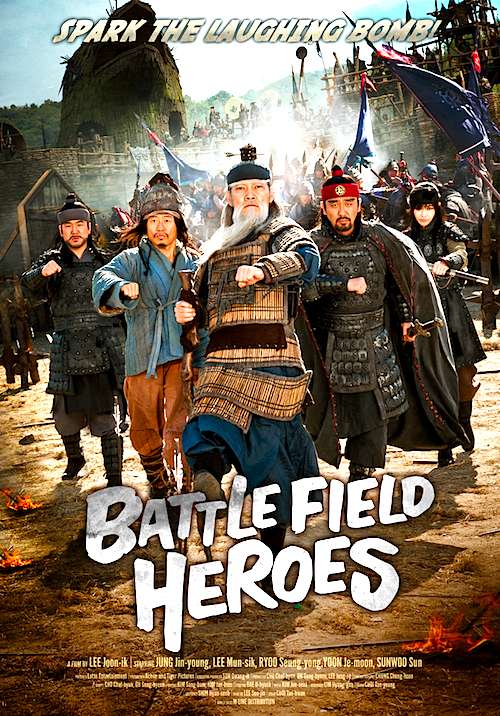 By Joe Bendel. The price of liberty has always been high, in both blood and treasure. It was true during the revolution we just celebrated on the Fourth of July and it was true during the Baron’s Revolt against King John, which led to the Magna Carta – a flawed but important document that informed our founding fathers’ conception of constitutional rights. Preferring the divine right of kings to the rights of man, John tried to reassert his absolute rule and nullify the Magna Carta, but an intrepid band of warriors will defy him, to their last breaths, in Jonathan English’s rip-roaring Ironclad (trailer here), which opens this Friday in New York.
By Joe Bendel. The price of liberty has always been high, in both blood and treasure. It was true during the revolution we just celebrated on the Fourth of July and it was true during the Baron’s Revolt against King John, which led to the Magna Carta – a flawed but important document that informed our founding fathers’ conception of constitutional rights. Preferring the divine right of kings to the rights of man, John tried to reassert his absolute rule and nullify the Magna Carta, but an intrepid band of warriors will defy him, to their last breaths, in Jonathan English’s rip-roaring Ironclad (trailer here), which opens this Friday in New York.
Tired of his cruel and erratic rule, England’s barons rose up against John the First (and only), but for political reasons, they left the weakened despot on the throne after securing his signature on their revolutionary document. Unfortunately, many were lulled into a false sense of security. When John makes his play, assembling a mercenary army and securing Rome’s support, he catches most of his foes unawares. Only Rochester Castle stands between him and London. However, twenty men assembled by Baron Albany are determined to hold it at all costs, in hopes that the French will arrive to install a proper monarch.
One of those men is William Marshal, a Knight Templar recently returned from the Crusades. Like the Twelfth Century equivalent of the IDF, the Templars are well accustomed to facing numerically superior enemies. Granted twenty against one thousand is a tall order, but thanks to its construction, Rochester can be ably defended by a small force. Yes indeed, the siege is on.
Ironclad delivers plenty of old school hack-and-slash action for Game of Thrones fans jonesing for a fix. However, equally striking are its scenes of the aftermath of battle, conveying the pain and bone-weariness of the warriors. The film also presents the best depiction of medieval siege techniques yet captured on film.
While the action is thoroughly satisfying, Ironclad proves to be a film of unexpected substance. The screenplay by Jonathan English and co-writer Erick Kastel (based on a first go-round by Stephen McDool) takes notions of faith and freedom deadly seriously. Marshal explicitly states that there is nothing noble about war, ever, yet some things are still worth fighting for—in nearly those exact words. Continue reading The Price of Liberty: LFM Reviews Ironclad




